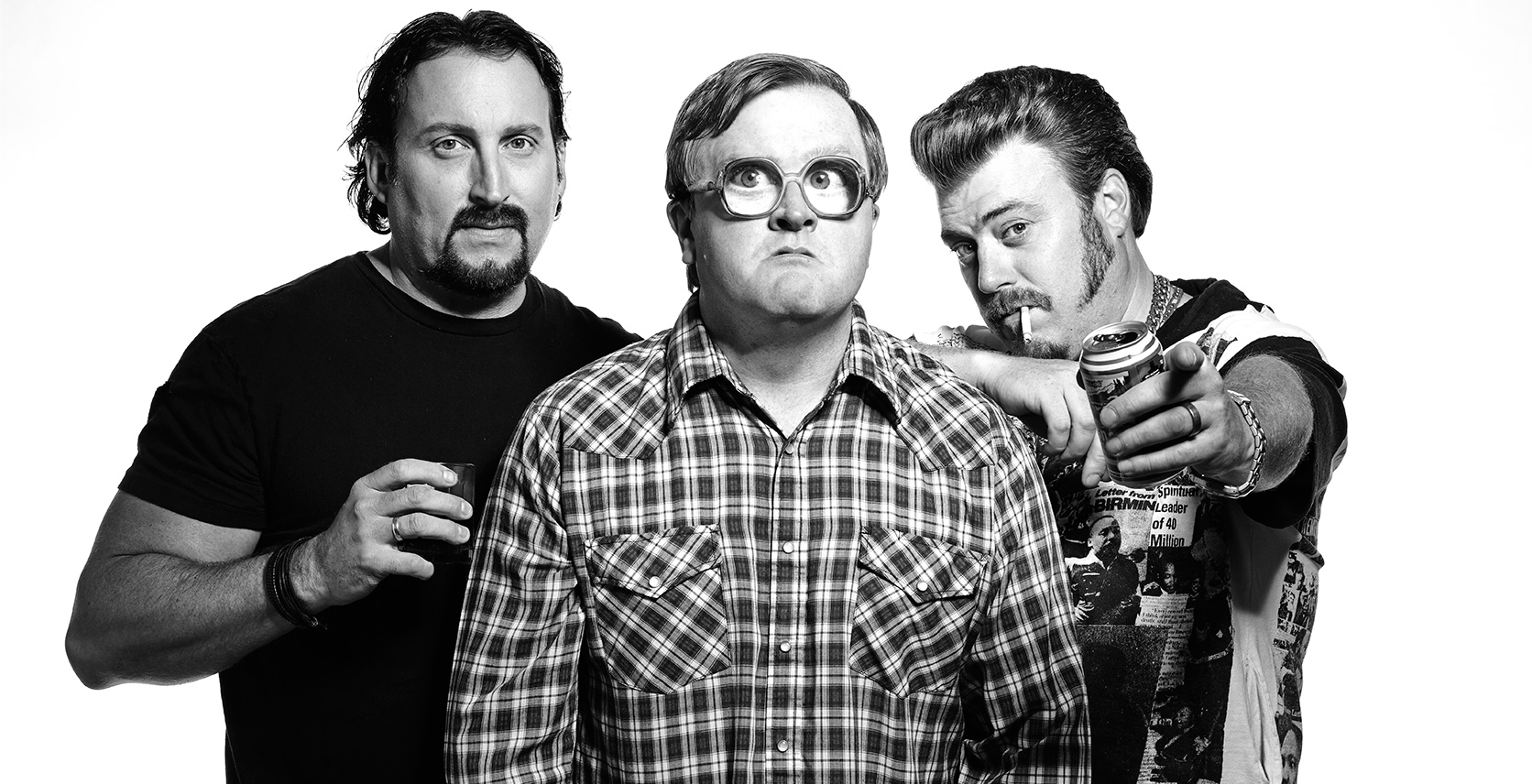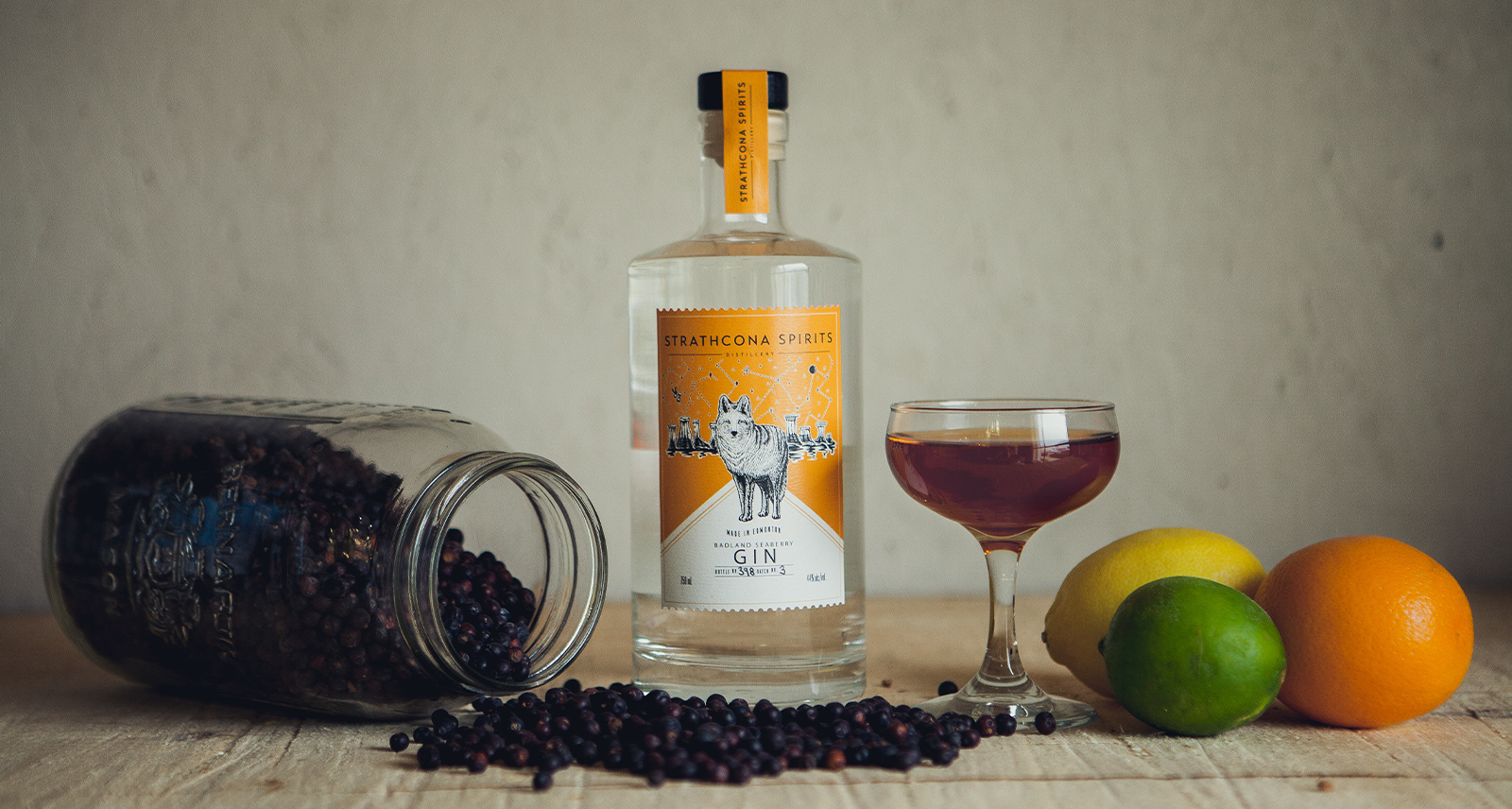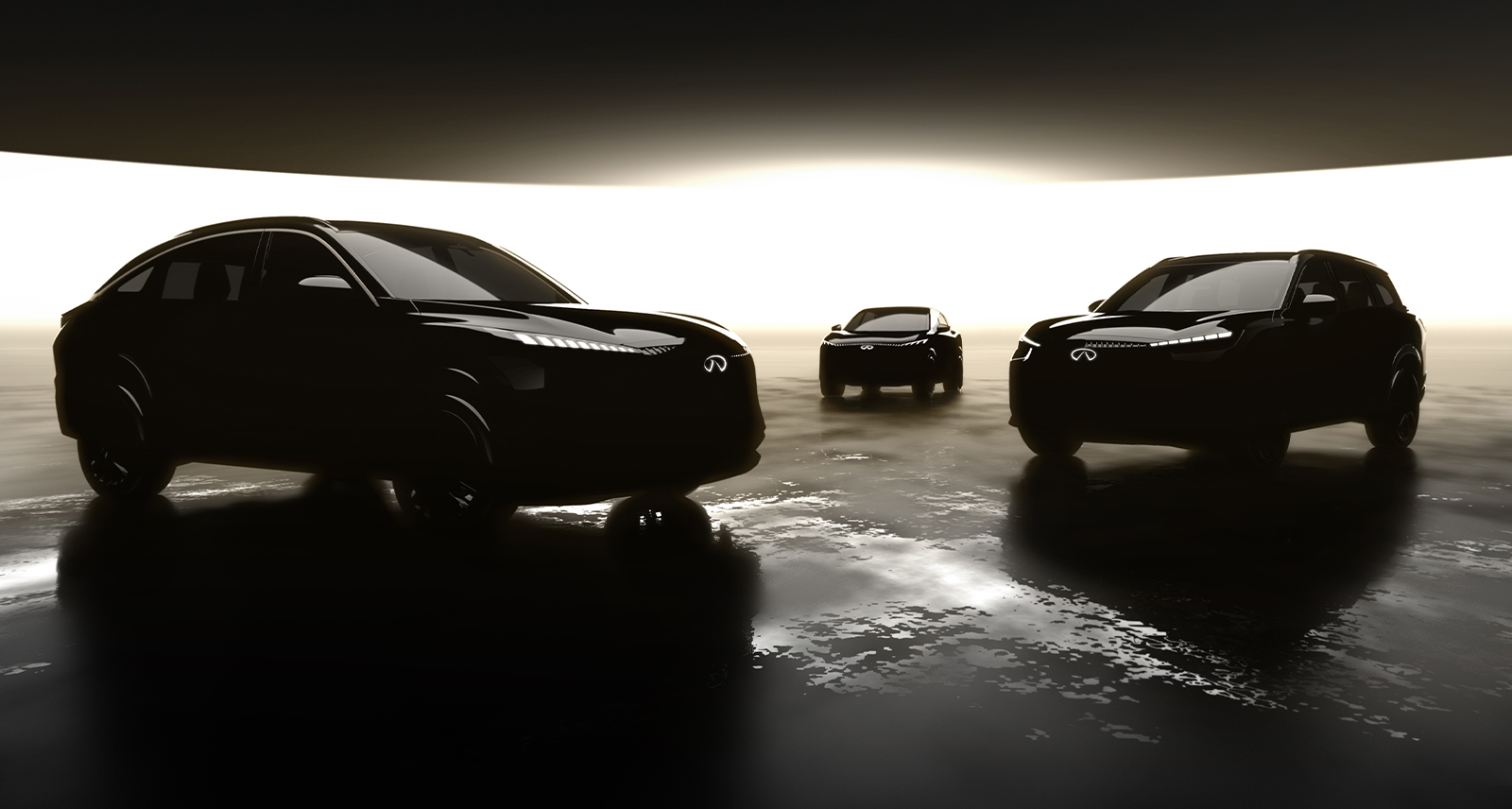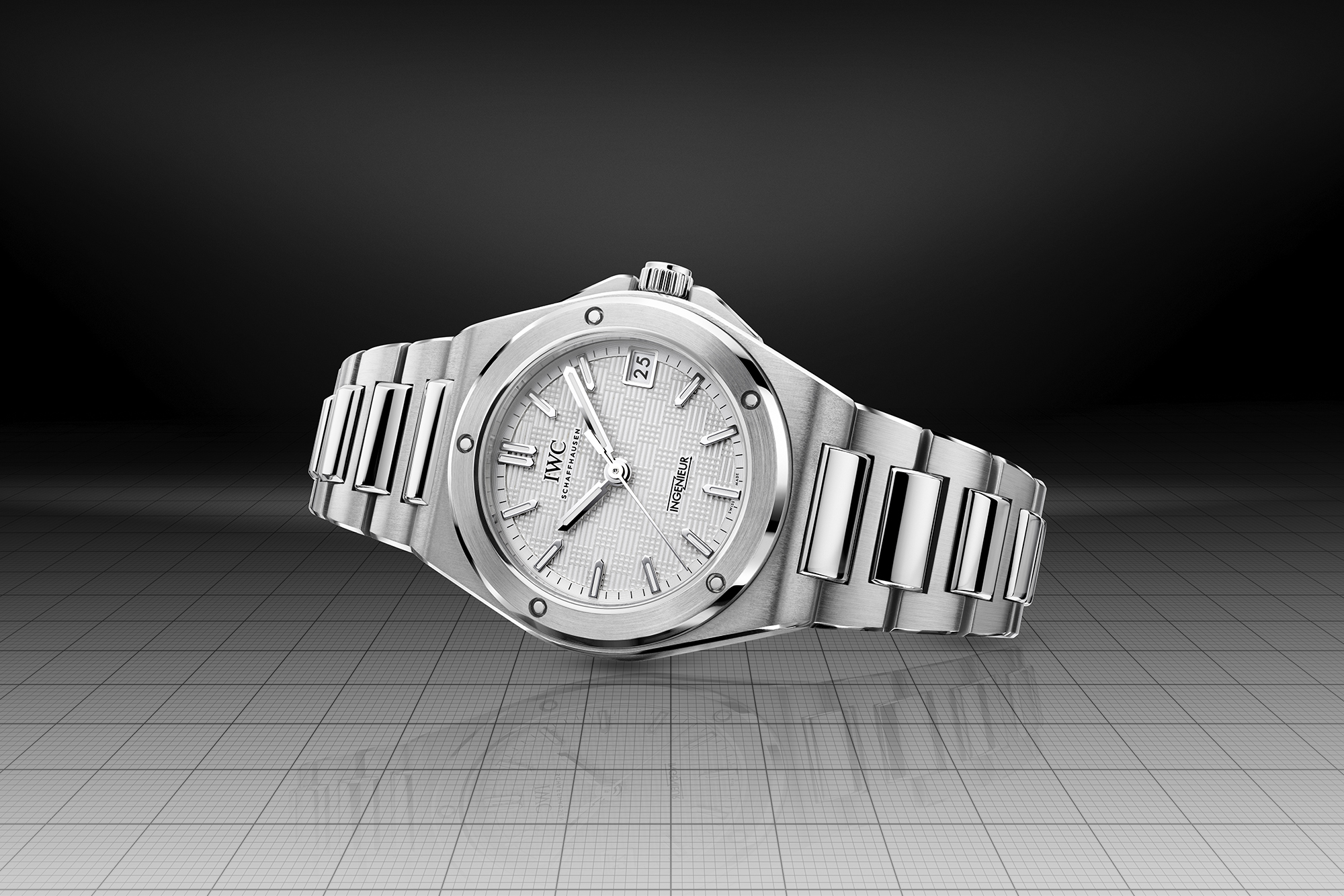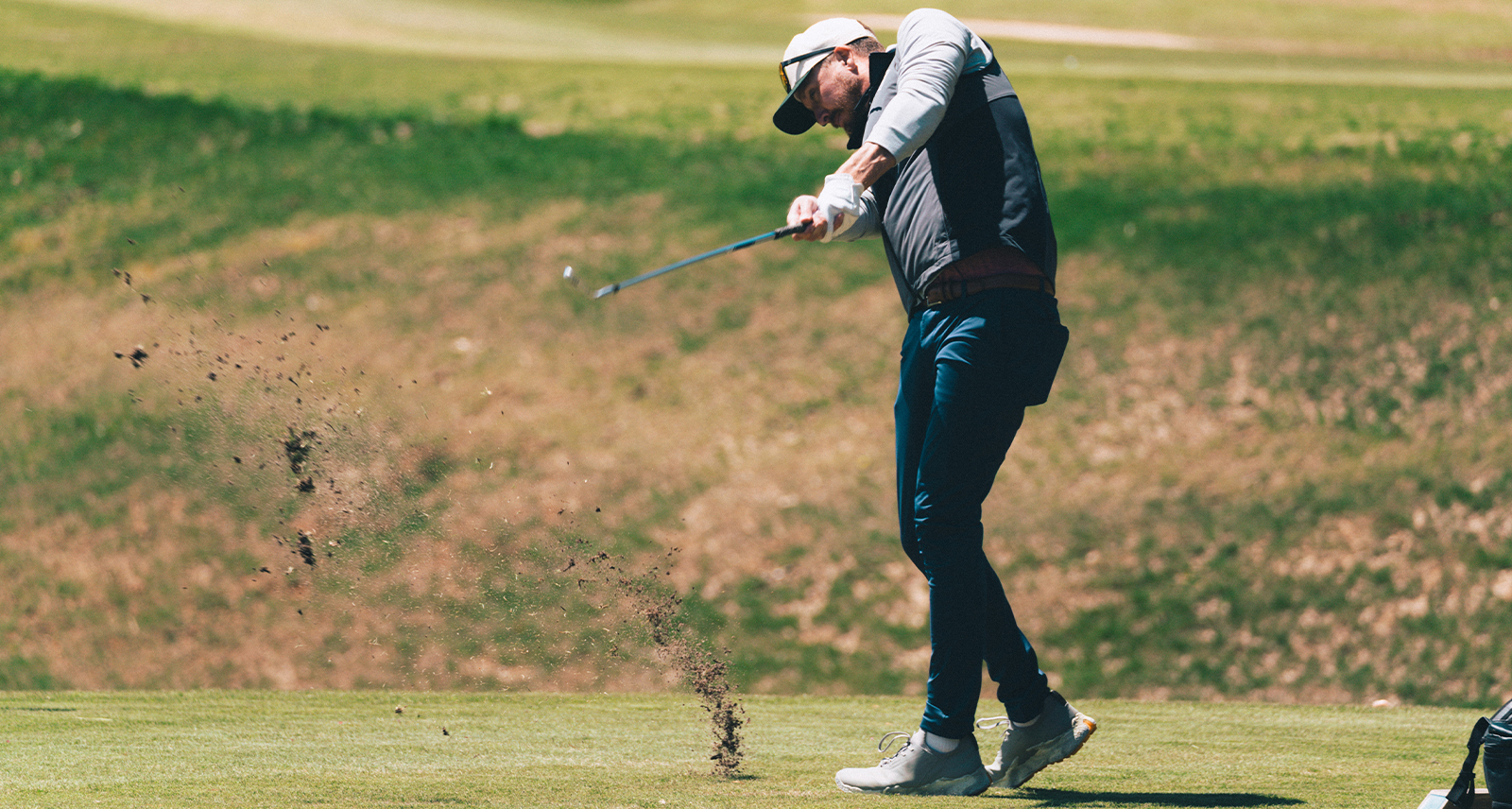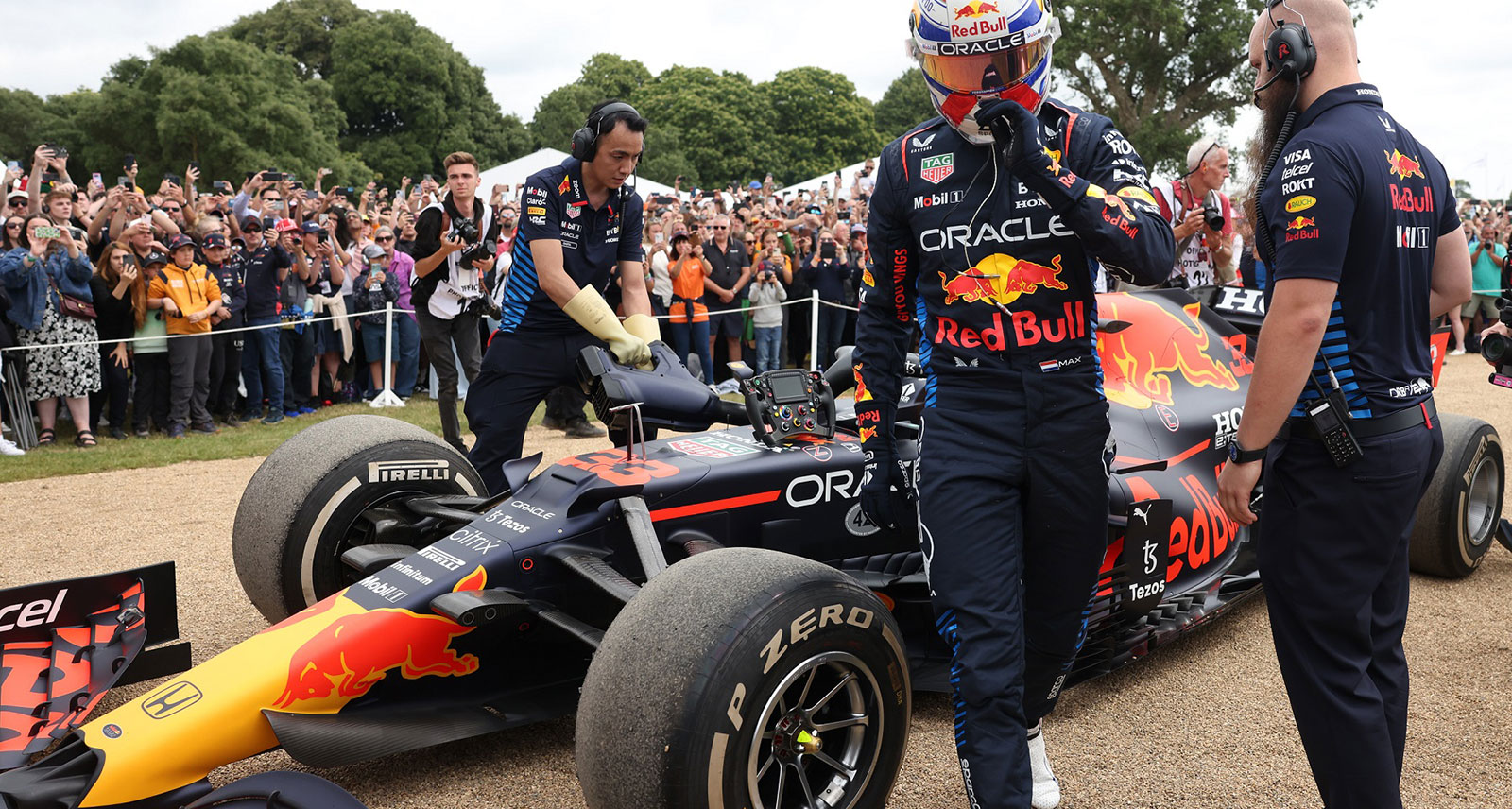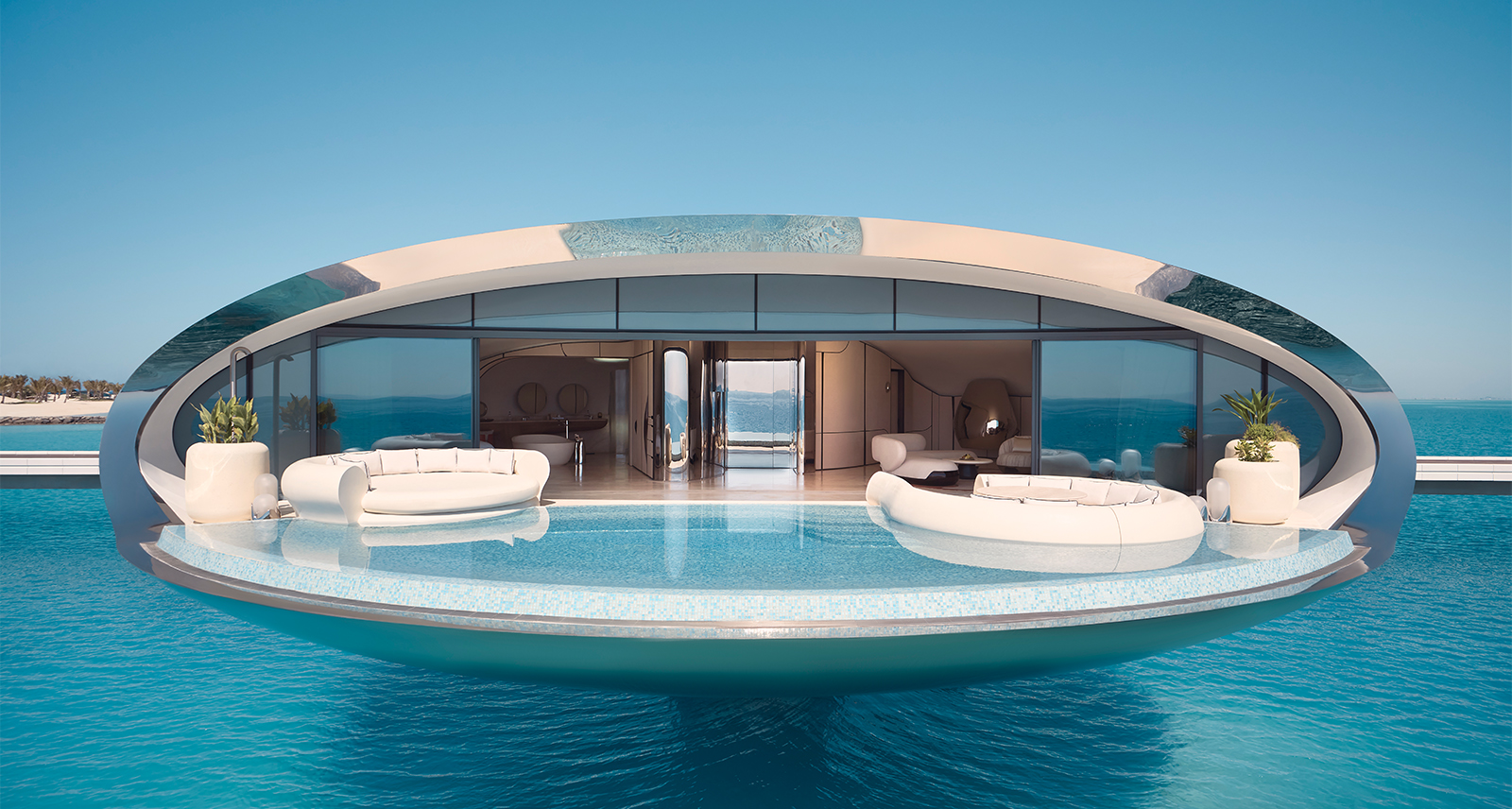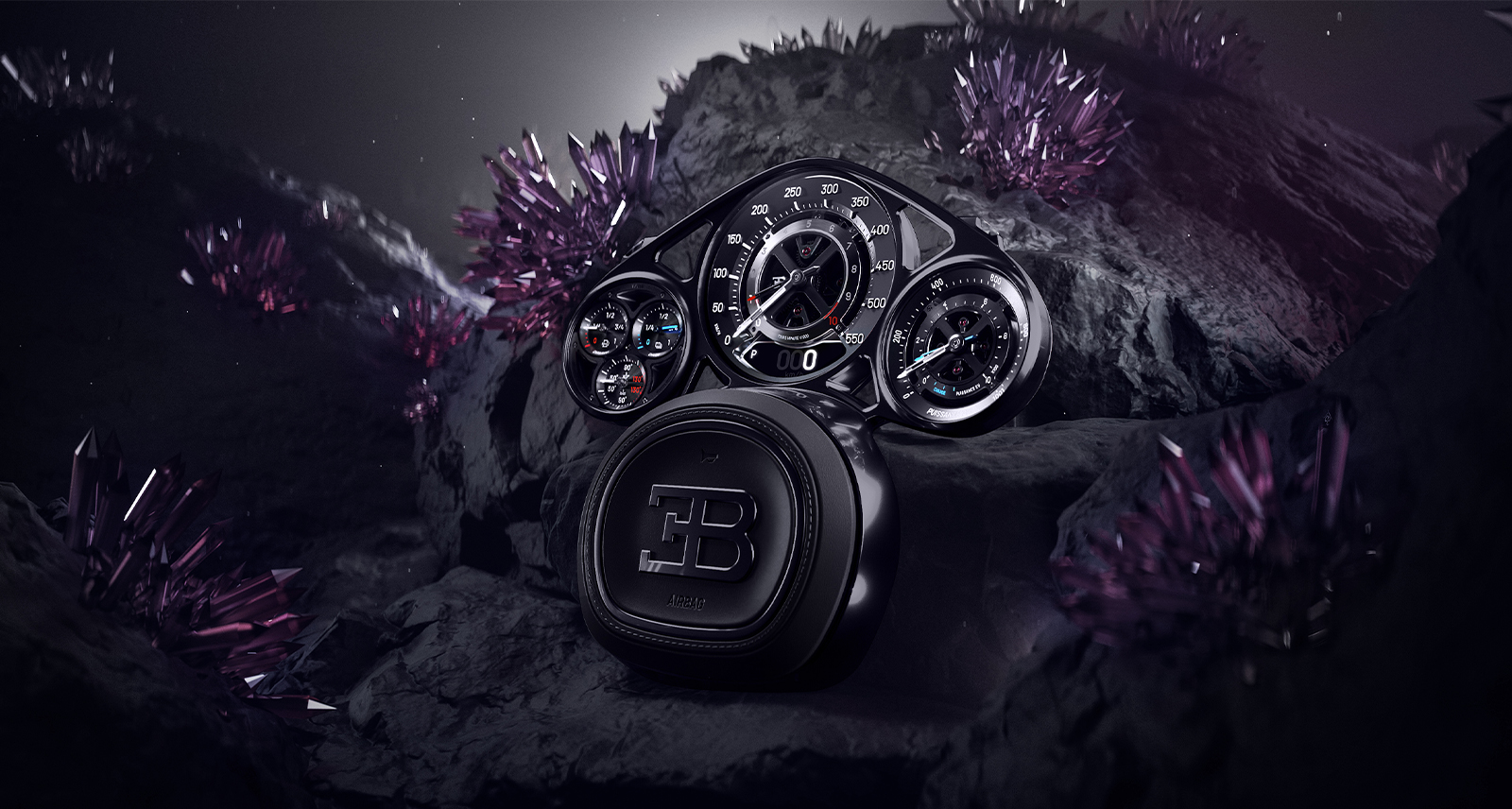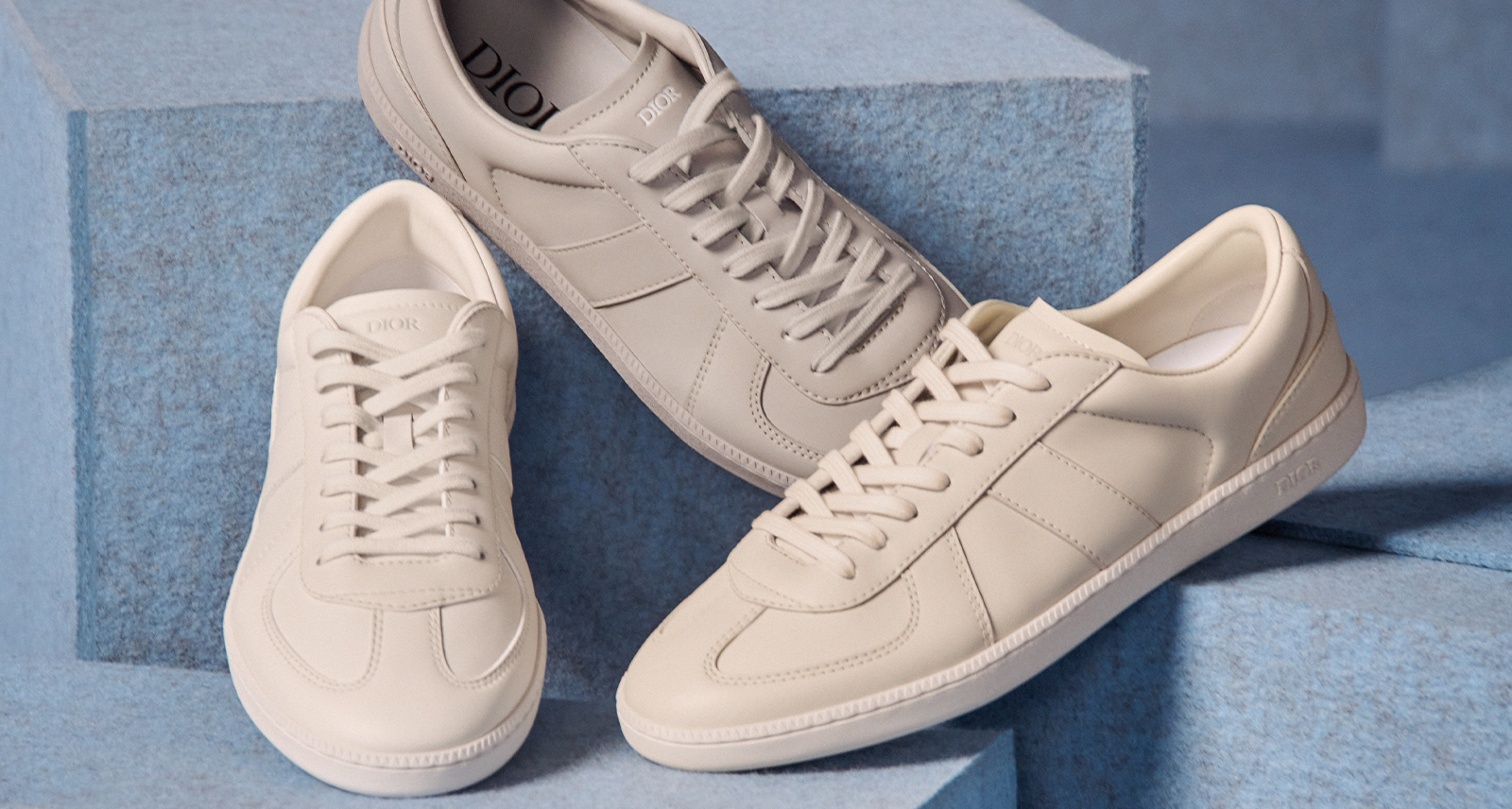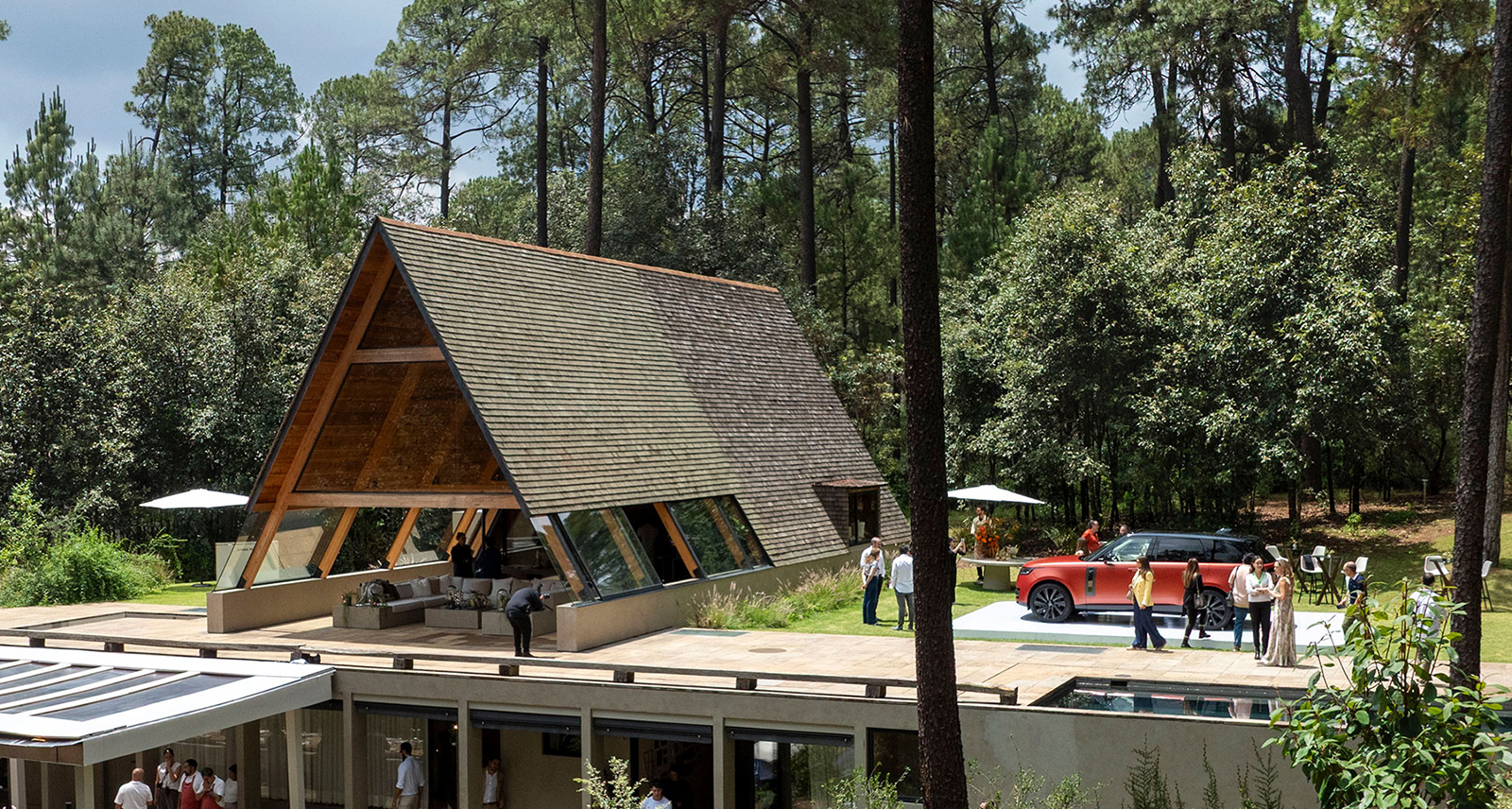The Complete Oral History of the Trailer Park Boys
This story originally appeared in our September 2014 issue.
Had there been such thing as trailer parks in Shakespeare’s day you better believe he’d have set a play or two there. Everybody knows the trailer park is where shit goes down. Instead, the task fell to a group of Canadian misfits — Mike Clattenburg, creator of Trailer Park Boys, and his stars: John Paul Tremblay (Julian), Robb Wells (Ricky) and Mike Smith (Bubbles) — to create the most unintentionally profound comedy of the 21st century, a lo-fi, mockumentary-style saga about dope, guns and power struggles with Maritime accents.
“It’s kinda like COPS, but from the criminal’s point of view,” Ricky says, in the pilot episode, explaining the “documentary” crew following his and Julian’s return to Sunnyvale trailer park after an 18-month prison sentence. But he’s also explaining Trailer Park Boys to the as-yet-uninitiated TV audience, whose knowledge of the mockumentary format was so new — particularly in the US — some thought it was an actual documentary about small-town Canadian life. Interest exploded in the next decade: the series is set to return for a two-season-long arc on Netflix, Trailer Park Boys is broadcast across the globe and sells out arena-sized live touring shows from London, Ontario to London, UK.
So how did a show about a group of petty criminals who never leave the trailer park, shot to look intentionally shitty and made with a tiny budget, become one of the biggest, most beloved comedies in the world?
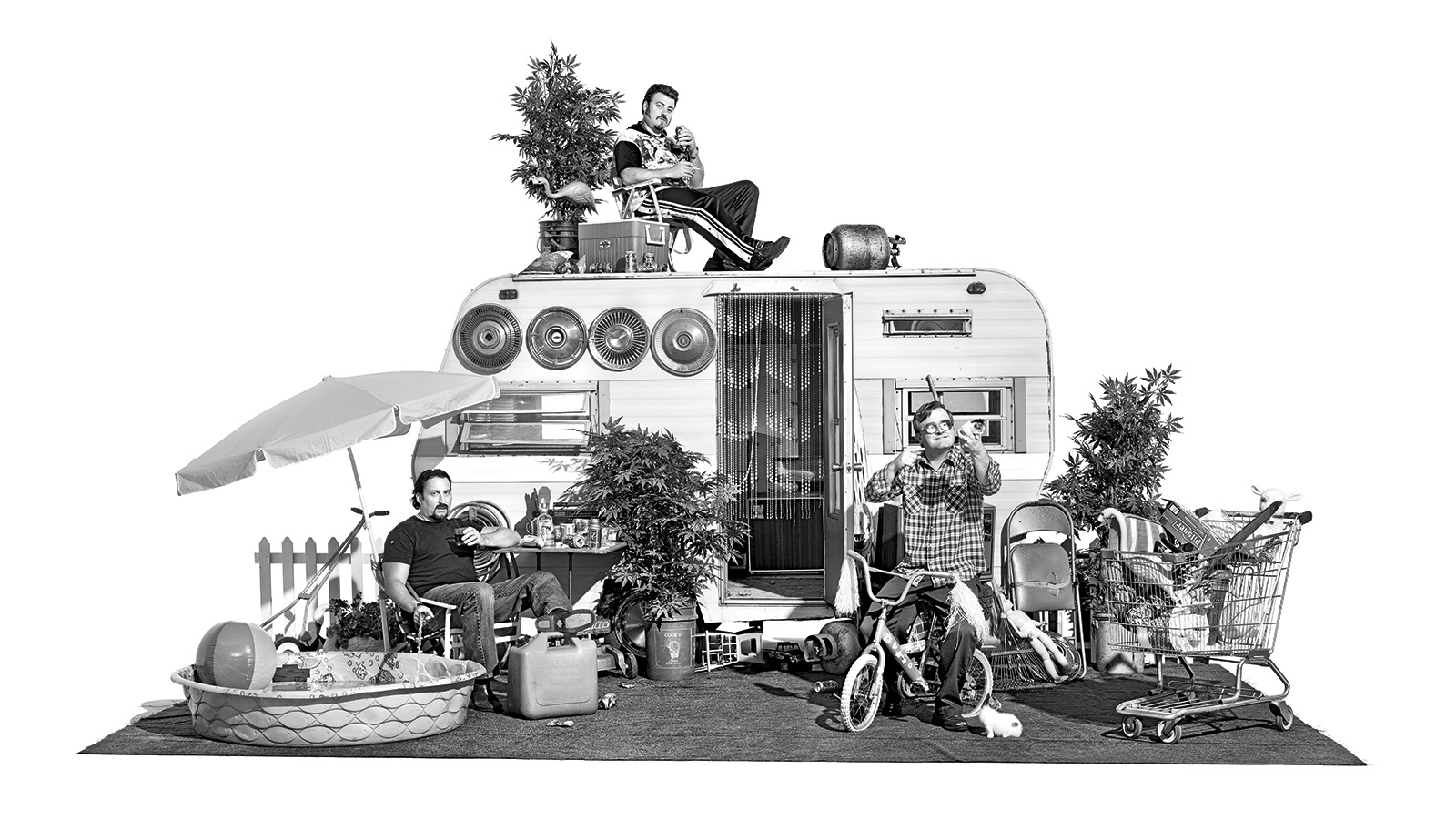
MIKE CLATTENBURG (SERIES CREATOR): I was watching a lot of documentaries, including Salesmen by the Maysles brothers. But it was COPS that really caught my eye and inspired me. It was true Cinéma vérité. I loved how it was shot.
JONATHAN TORRENS (J-ROC): When I was 15 I started working on this consumer affairs teen show called Street Cents. A young buck by the name of Mike Clattenburg was hired to work there after making a name for himself with his—forgive me for using the most overused word in the English language—irreverent cable show called That Damn Cable Show. So when Mike and met, I was already a fan.
MIKE CLATTENBURG: JP [John Paul Tremblay] and Robb [Wells] were my pals who owned a pizza joint called JR Capone’s in PEI. They’d come to town and we’d hang out. I found them to be natural actors and encouraged them to do some shorts with me.
ROBB WELLS (RICKY): JP and I have known each other since we were teenagers, about 30 years.
JT: One of the things Mike and I would do was put in proposals to government agencies for funding to make music videos. We’d always put in a black and white film component to the pitches and then never shoot any black and white. Meanwhile, we were hoarding all this black and white film stock in our fridges for this short film we wanted to make.
MC: In 1998, I made a black and white film starring JP and Robb called One Last Shot. It was about two guys falling in love and moving to Vancouver to grow dope. It also starred John Dunsworth as a drunk pet shop owner.
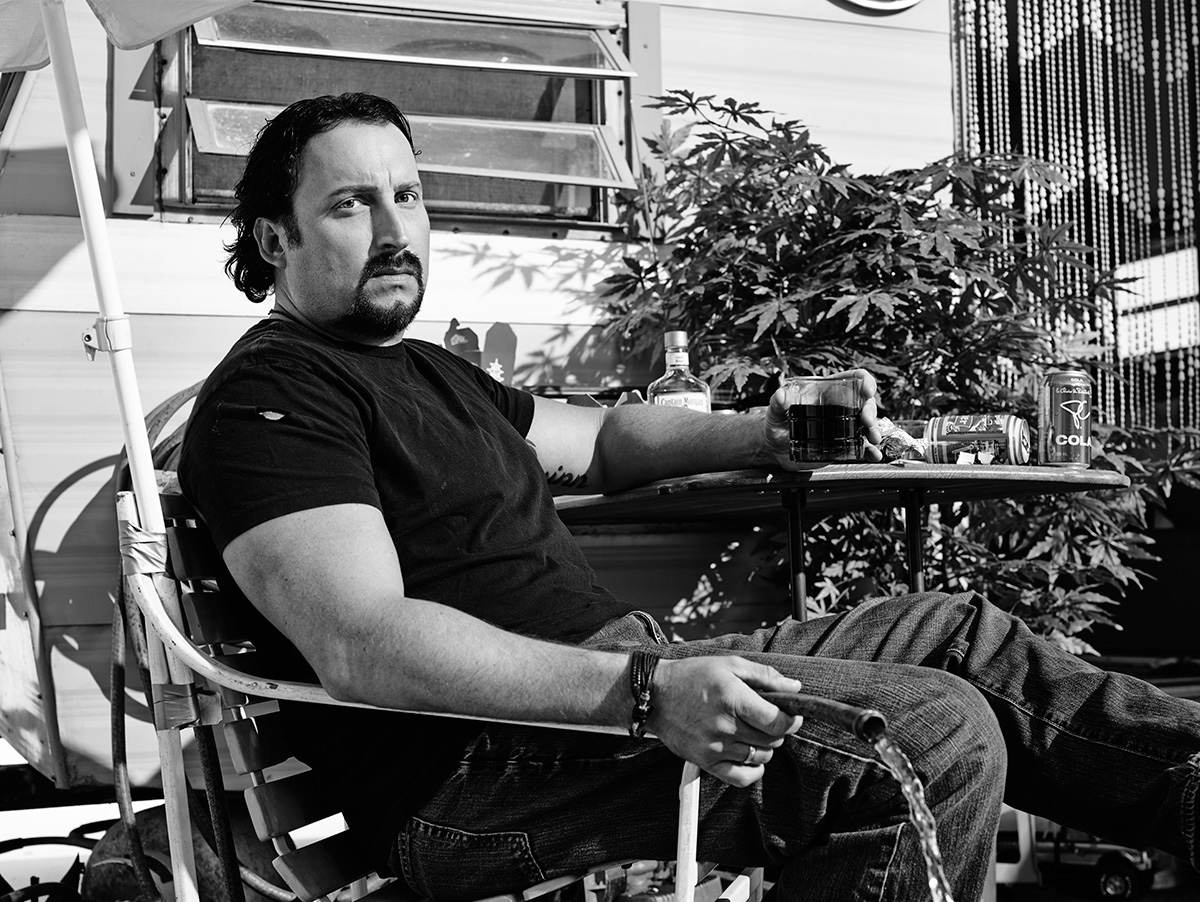
JOHN DUNSWORTH (JIM LAHEY): We did One Last Shot for fun, there was no pay, and I got in trouble with my union for doing it. But if I hadn’t done that, Mike wouldn’t have cast me as Jim Lahey in the trailer park and I would not have enjoyed ten years of wonderment.
SARAH DUNSWORTH (JOHN DUNSWORTH’S DAUGHTER; actress, SARAH): I met Mike [Clattenburg] when he auditioned for a role in a film; I was working at the casting agency. Mike is an extremely talented actor—I remember being completely blown away by his performance. After we finished I walked him to his car and we smoked a joint. He was driving Ricky’s shitmobile when it was still green.
MIKE SMITH (BUBBLES): I’m a musician. I played in a band called Sandbox. Once the band broke up I wanted to stay in the industry. I knew Mike was making a film. I had a little recording studio setup in my house so he asked me to record the audio. That’s where I met Robb and JP.
JT: Halifax has the largest black population in Canada, and Mike and I went to school with all these characters who spoke in the kind of local and regional patois, so we spoke like what would become J-Roc around the office all the time. One fateful evening, Mike’s friend John Paul Tremblay was visiting, and we were out drinking in downtown Halifax. We went for French fries, and John Paul said, “Pass the ketchup, J-Roc,” and that’s how the nickname was born.
Encouraged by the response to the short, Clattenburg created a feature length film.
MC: Trailer Park Boys could look cheap and handheld which was perfect as I financed the film myself. [Producer] Barrie Dunn saw it and it stuck with him. We flew to Toronto, pitched one broadcaster who wasn’t interested, and came back home. But at the last minute we decided to try and land an unscheduled pitch. I’d heard that Showcase was doing edgy, original programming and we decided to give them a ring. Luckily, Laura Michalchyshyn was working late as usual.
LAURA MICHALCHYSHYN (Former Programmer, Showcase): I got this really random phone call, on like a Wednesday or a Thursday, and I picked it up and it was Mike. “Oh man, I didn’t think you were gonna answer.” He lost a bet. He had bet that I wouldn’t answer my own phone.
JP: We showed Showcase the pilot and they really liked the characters and the mockumentary feel of it. It was very low budget. It was the right time, right place to pitch it.
LM: Mike was like, “I just played the movie at Halifax, it’s black and white, it’s under an hour, and I want to make a TV series.” So I watched it. It was original, bold, and outrageous. They were swearing, smoking and drinking. It felt new. Within a week we were talking about what a series would look like.
JT: Mike called me and said, “We’re doing six episodes of a show called Trailer Park Boys.” I’d seen the short, and knew the guys. He said, “You should play J-Roc.” Mike and I got along so well creatively and really made each other laugh. That, and getting to spend time on something different was very appealing.
RW: Showcase picked up the first season, thinking it might only be a 6-episode mini series, but it was really well received and they signed the second season before we even aired.
And then there was Bubbles…
MC: I hired Mike Smith to do sound on the first TPB film. I was over at his house one night and he had these thick glasses. He put them on and did this sweet voice and I really liked it.
MIKE SMITH: My girlfriend at the time was in Texas visiting family and they went to an estate sale and she found these glasses. They were 50 cents, and she knew that I would think they were funny because they were so thick, so she bought them as a joke. There was a picture of the old lady who the glasses belonged to, too. She only had 50 cents on her, so she bought the glasses but not the picture. I would love to have that picture.
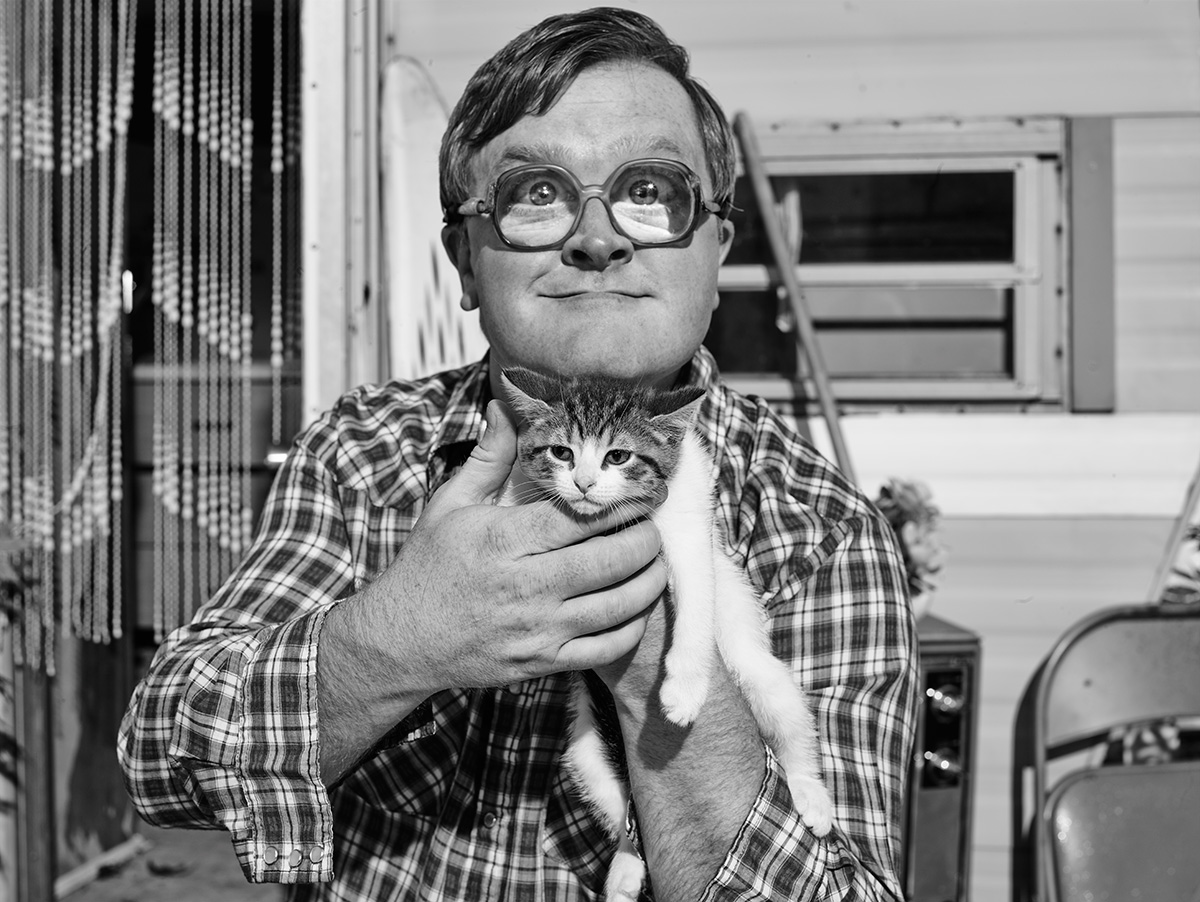
MC: I pitched Showcase the idea of including this character. They didn’t bite at first, so I wrote a short film called The Cart Boy. Showcase liked it but still weren’t sure so I fleshed out the character more.
JP: [Mike Smith] totally developed that character. He threw those glasses on one day, and we were like, “Wow. This guy needs to be on the show.”
MC: If they hadn’t okayed Bubbles, I don’t think the show would have taken off.
LM: No one but Mike Clattenburg could have done that — in collaboration with the team. But it came out of that brain, frankly. It really did.
MC: The writing was just me, Robb and JP. Later we wrote with [producer] Barrie [Dunn]. He added things like Plato’s Noble Lie to Bubbles’ dialogue. Barrie wanted to make sure Bubbles came off as the smartest guy in the park.
LM: We realized that we had lightning in a bottle after we started seeing first cuts. It was outrageous but it was really funny, hysterical television. All the guys were equal collaborators in creating their characters and writing their parts. It was an incredible ensemble.
JT: It’s a great lesson about comedy. The smaller the nucleus, the better. It was very much Mike’s vision, we all spoke the same comedy dialect, and it was literally summer camp for swearing. Sitting around trying to crack each other up. I have permanent scarring on my inner cheeks from trying not to blow takes when Mike Smith is two inches from your face saying, “That was a prick job.”
JD: In the lingo of Jim Lahey, I’m a shit puppet. I just did the lines, and Mike Clattenburg would say, “Give me 6 out of 10 drunk and 2 out of 10 anger.”
JT: I don’t mean to say it reinvented the comedic wheel, but the aesthetic of it was baffling. It looked like garbage! Creating a series in that aesthetic—it shot with available light, handicam, outside—it’s so cheap that what we saved in production expenses we made up for in takes. So we could do 40 takes of something until it started swinging very hard.
SD: I’ve seen my dad in underpants 256 times. These are things that don’t happen in most families.
JT: I was worried about J-Roc being offensive to the hip-hop community and to the white guys who dress up like they’re black. When the show debuted, the hip-hop community immediately got it. They said, “Man, thank god someone is making fun of these white dudes who think they’re black.” And the white dudes who thought they were black honestly said, “Man, thanks for representing us on TV, dawg.” They were delighted to have been given a platform.
Trailer Park Boys became Showcase’s flagship show.
JP: We didn’t know how many people were actually watching the show. Being from a small place like Halifax, people would recognize us, but we got out west and we couldn’t believe how many people were actually into it.
MS: At that point we weren’t involved in producing the television show, so we would have a bunch of time off. Hosting live events became another way to make a couple bucks.
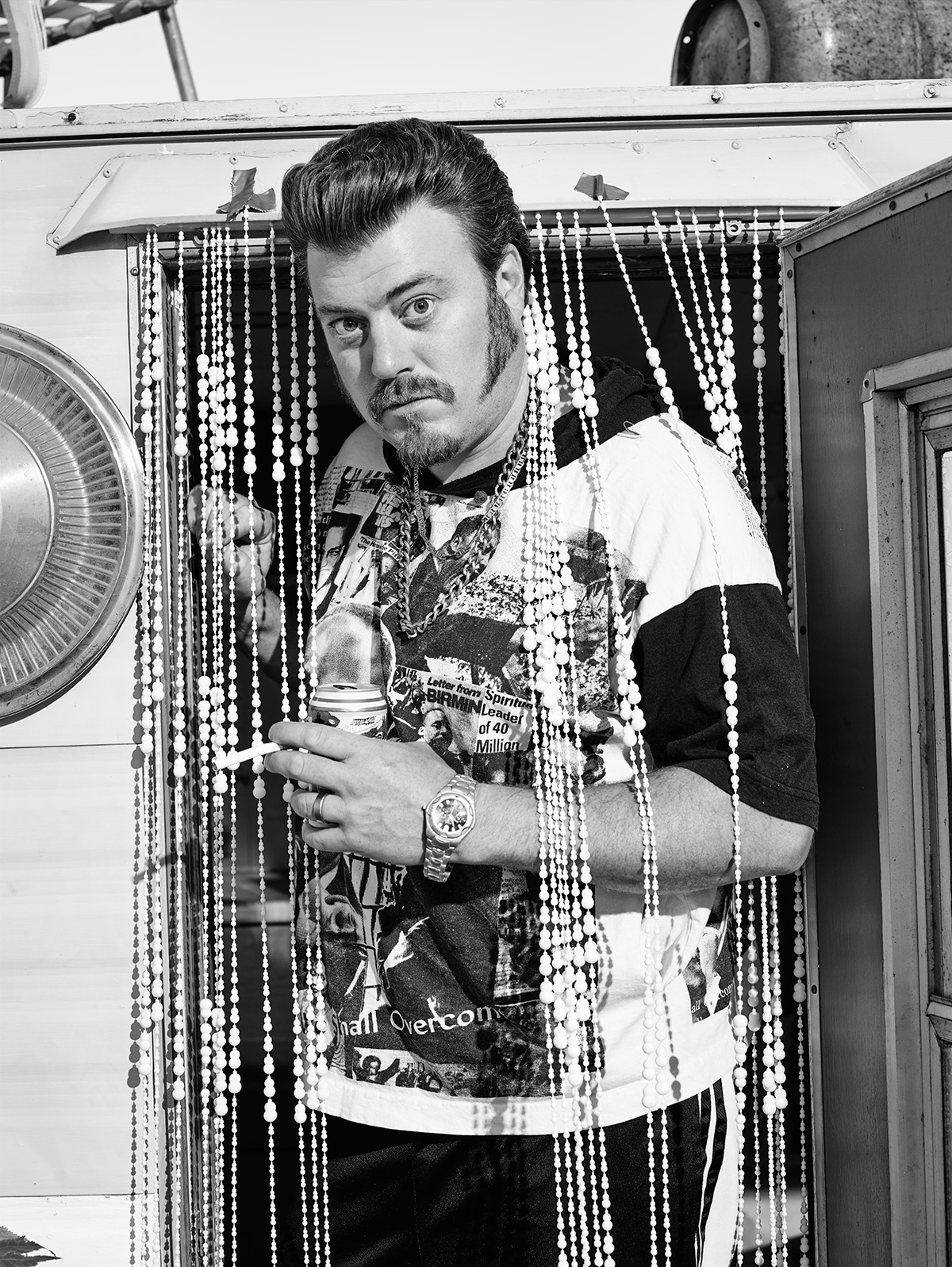
RW: After season three we went on tour with Our Lady Peace, and we didn’t know if anybody was going to know who we are. We got on stage and the whole place went nuts, and we knew the show was a lot bigger than we thought.
MS: We’ve always been big with musicians. A lot of it was the DVDs of the show being passed around tour busses. We’ve met quite a few bands over the years. We had Sebastien Bach on, and he introduced me to Axl Rose. We became buddies.
Still, US success remained elusive — at first.
MC: We tried to crack the US market during seasons 1-7. Every US broadcaster took a close look but they all steered clear. Some found the Maritime accent as thick as an English accent and tough to understand.
LM: I think the issue was it was a little rough and tumble for American television. It really needed a home that allowed the language, subject matter and spontaneity of the show to breathe.
MC: The strangest moment was when I was lost in Santa Monica last year. I asked a dude for directions explaining I was from Canada and he said, “Have you heard of Trailer Park Boys? I love that fucking show!” That freaked me out in a good way!
JT: The J-Rocs of the world use the N-word all the time, and although that’s accurate, it’s not funny. Trailer Park Boys has really strived to maintain a sense of decorum. Nobody smokes dope in scenes where there are children, nobody calls Bubbles the R-word, or Randy and Lahey the F-word. There is a sense of community.
MC: These were original characters that talked like people we all grew up with and they were funny, shitty underdogs, swearing and growing dope on Canadian TV—but the show also had heart. Our Canadian fans kept the show from cancellation and eventually the rest of the world found it.
Seven seasons in, cracks started to appear. Actors Cory Bowles (Cory) and Mike Jackson (Trevor), who were also crew — raised the complaint that they were being underpaid and left the show. (Cory subsequently returned for Season 8.)
RW: At a certain point it got too big. Too many people, too many crew. The shooting slowed way down. It was taking 4 days to shoot an episode versus 2.5. The old producers decided the show was basically done, and we sort of moved on. We did a new series called The Drunk and on Drugs Happy Fun Time Hour and then we shot a movie called SwearNet, and then the producers decided they wanted to do another movie. So we said, if we’re going to do a third movie, we want to do more than just that. We wanna do another season, maybe a fourth feature. Basically, we want to have the freedom to keep doing whatever we want.
MC: I love TPB but it’s not something I want to do anymore. I’ve put 12 or more solid years into that show wearing many hats. I miss Sunnyvale but I love what I’m doing now.
RW: It only made sense. We worked out a deal where we would buy the rights for all of it.
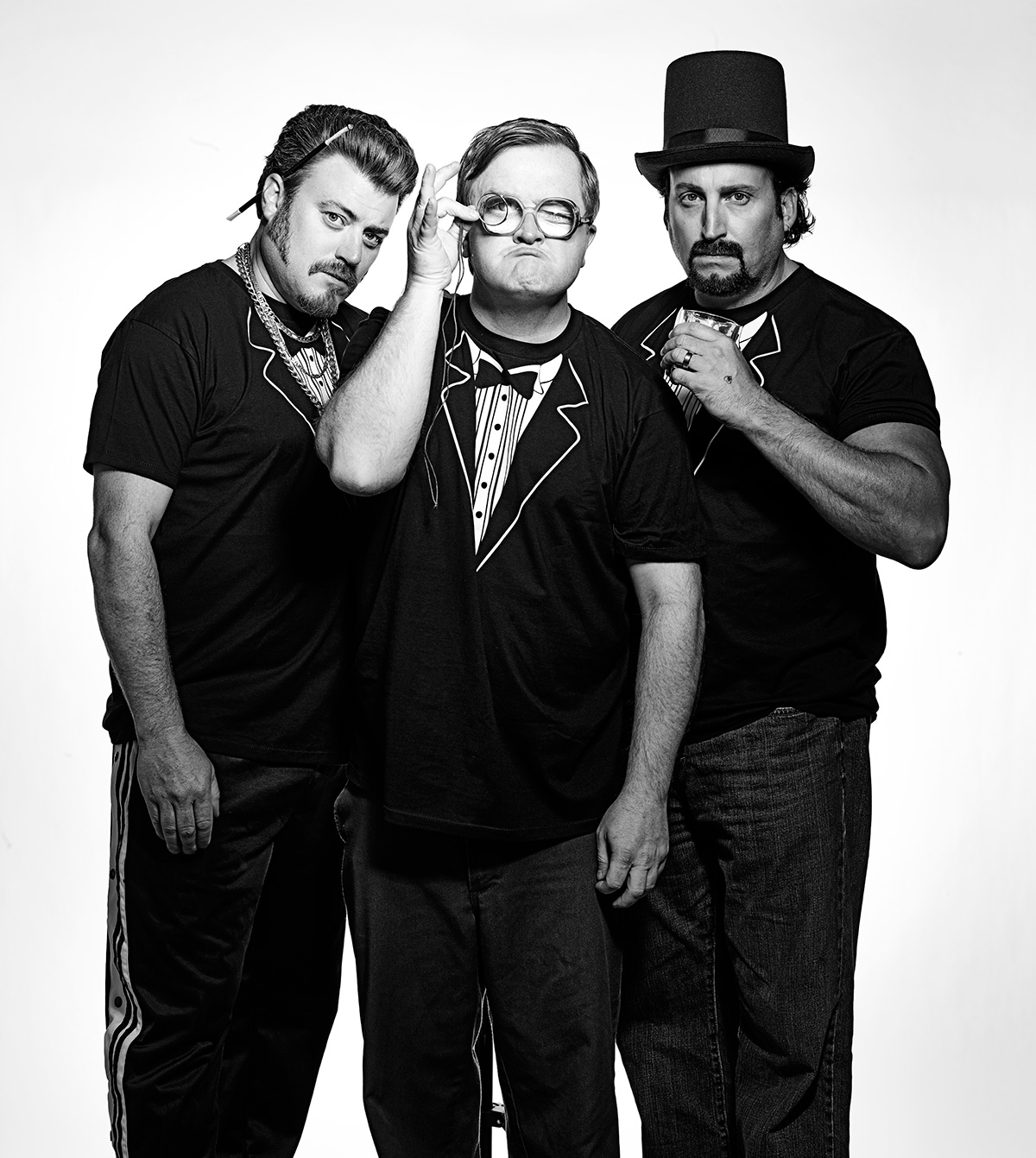
The team brokered a deal with Netflix for seasons 8 and 9.
MS: Netflix was like, “Send us the shit when you’re done,” and that’s what we did. You get a lot more done, you get it done quicker, and you get it done better because you get to have your vision true to what it was in the beginning.
JP: We always enjoyed the first three seasons the most. And with seasons 8 and 9 we tried to bring it back to our roots where we can shoot a lot faster. We find that at the faster pace we get the better improv. Everybody’s in character a lot more.
JD: A few years ago, the old producers phoned me and told me it was over, and I said “Are you crazy? Do you know how many emails, and Facebook messages, and fan mail I get saying ‘The trailer park changed my life for the better’?” There are so many Canadian soldiers in Afghanistan who would get to come home in the nights to watch this. I can’t exaggerate how many people have said, “You got me through the hardest times.”
MS: I can see us doing these characters for 20 more years if we’re alive and healthy. It would be funny to do a Coronation Street thing and watch them get old and shitty. I would love to see Ricky, Julian and Bubbles in 20 years when we’re all old as fuck. That would be funny.
